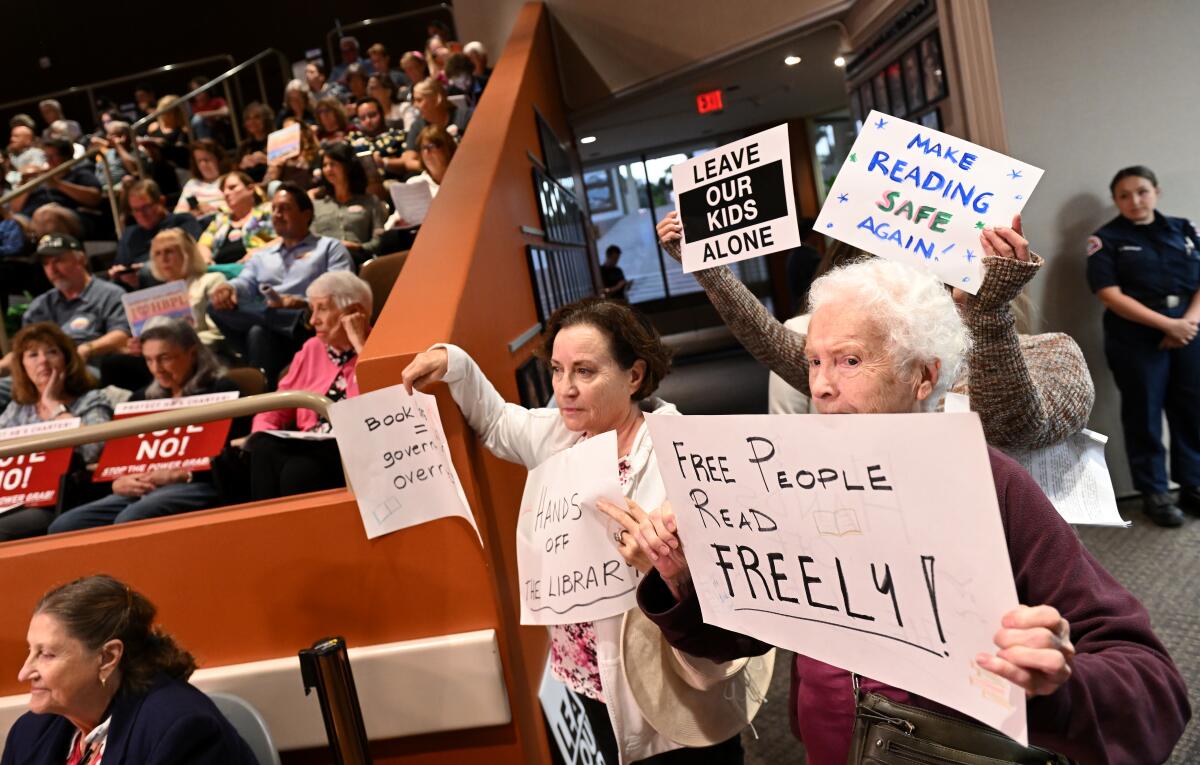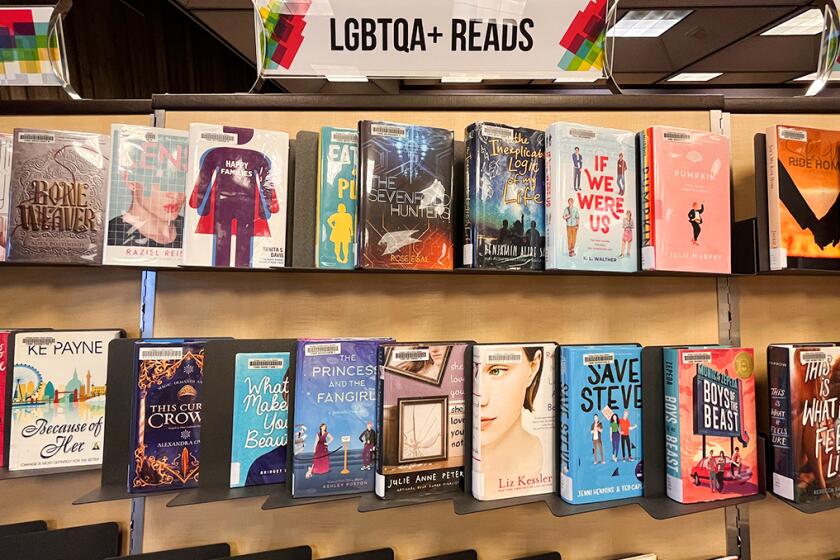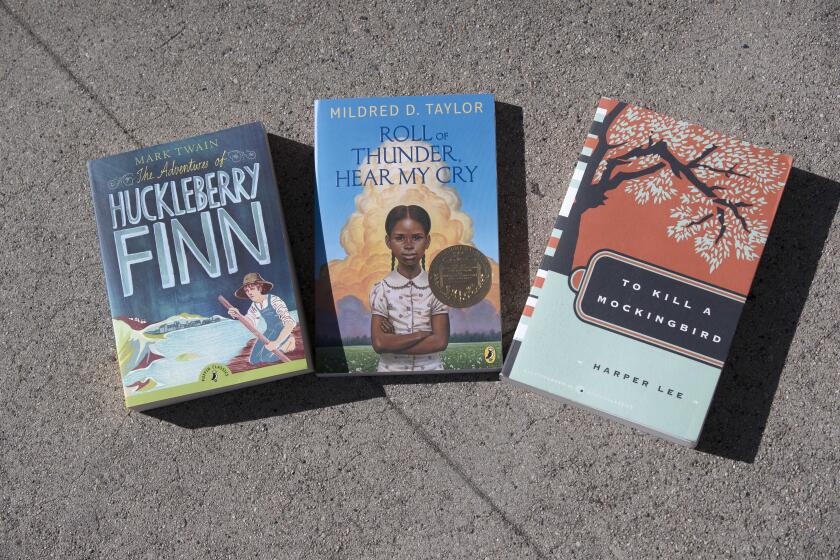Huntington Beach will let neighbors censor neighbors’ reading choices. That’s wrong

- Share via
From now on a panel of 21 appointed residents will screen all new books for sexual content headed for the children’s and teen’s sections of the Huntington Beach Public Library, as well as reviewing the ones already on the shelves. Proponents of this new regimen, including Mayor Pro Tem Gracey Van Der Mark, who first proposed the panel, proclaim vehemently that this is not a book ban.
Don’t believe them.
Yes, it is true that no books currently sitting on the city’s library shelves will be removed by the citizen panel because they contain references to sex. (No one expressed concern about racist or other potentially problematic content.) Some books may be transferred from the children’s or teen section to the adult section and parents can approve an all-access library card for their kids to use those materials without a parent present.
As attempts to ban or restrict books reach a record high in the U.S., public libraries and school districts have become new battlegrounds for the nation’s ever-present culture wars.
But what’s most troubling about this new system, approved by the City Council Oct. 17, is that this panel of book judges, who may have no expertise in literature or librarianship, will have the power to block the library from buying new books they deem inappropriate.
And the moralistic decisions made by the panel won’t just affect young readers. A 2012 study found that more than half the purchases of young-adult books, geared to the 12- to 17-year-old set, are made by adults. And most of them are not buying the books for the teenagers in their lives, but to read themselves. But adults won’t be able to read them if the panel decides against buying them.
Book-banning typically pits small groups of prigs and right-wingers against the community, but communities are fighting back.
Giving residents censorship rights over librarians and the public crosses a clear line that should never be breached.
Van Der Mark justified the panel with the argument that librarians make those decisions all the time. Fair point. But librarians are professionals who have undergone extensive educational training to understand the meaning of obscenity, which is not protected by the 1st Amendment. Under the U.S. Supreme Court’s Miller ruling of 1973, which still is the legal measuring stick for obscenity, it is not enough for a book or speech to contain graphic sexual content; within the context of the entire work, it must be without serious literary, artistic, political, or scientific value as well.
Banned Books Critical Race Theory Censorship
This is a decision for experts to make. Neighbors should not be blocking neighbors from having books available at their local library.
The Huntington Beach library purchases 9,000 books a month for children and teens. It has been left unclear whether the panel will take a serious look at 9,000 books each month. If even only a tenth of those might be worth scanning for potential sexual content, that’s still 900 books a month. It’s not reasonable to expect the panelists to give all a thorough and fair reading. It’s hard enough for most of us to finish whatever reading our book club has selected that month.
Van Der Mark says the panel will use the same resources — book review catalogs and so forth — that the librarians use, since even the experts can’t possibly read that many books each month. But librarians aren’t scouring books for sexual content, which the panel will be doing. This is — or certainly should be — a more complicated task than Van Der Mark and her allies may have considered.
Banning books is about restricting ideas. It’s heartening to see some public leaders and others challenge whether these bans are constitutional.
There’s more room for debate when it comes to placing books for very young children in a restricted section. It’s an age when parental control plays a bigger role in choosing books.
But it’s easy to see that attempts to control the young-adult section are problematic and simply impractical. In that section, parents more averse to sexual content may object to books that, for example, give some graphic illustrations when explaining safe-sex techniques. Those parents should be aware that despite their own beliefs, their children might need that information and are especially unlikely to ask parents who they know will react badly.
Besides, what would be the point? Most teens have smartphones or computers that connect them to the internet, where they can find pretty much anything they want. And if their electronic devices have restrictions on them, they know others whose access is unlimited. A book in the Huntington Beach library is likely to be a whole lot more accurate than some of the sites they’ll find online.
Once we have placed a smartphone in a kid’s hands, are we really going to think of it as a negative if they pick up a book instead?
More to Read
A cure for the common opinion
Get thought-provoking perspectives with our weekly newsletter.
You may occasionally receive promotional content from the Los Angeles Times.













